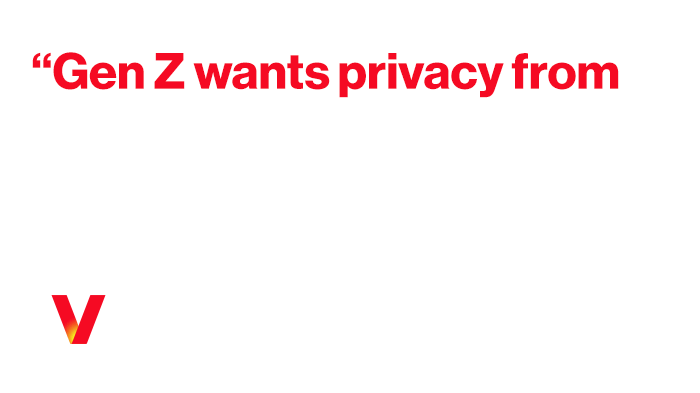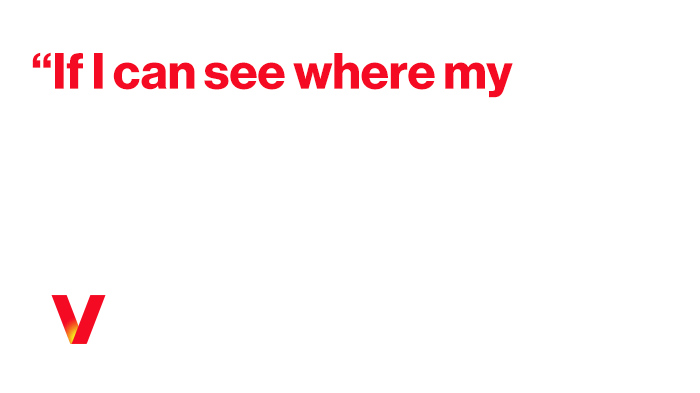- All News
- Networks & Platforms
- Products & Plans
- Responsible Business
- Public Safety
- Inside Verizon
- Financial
- Noticias
- Press ToolsNews ReleasesMedia ContactsB-roll and imagesVerizon Fact SheetRSS FeedsEmergency ResourcesCable Facts
5 tips for a conflict-free talk about parental controls with your teen
Your teen wants to be independent. You want them to be safe. Here’s how to talk with them about Verizon Family so everybody wins.

“Don’t you trust me?” If you set up parental controls like Verizon Family, you may hear this in response from your teen. Obviously, you know these controls offer important protections, giving you peace of mind while keeping your teen safe. But could you explain your decision in a way that not only makes sense to your teen, but that also builds their trust in you?
First things first: Parental controls are a tool to help you teach your kids to navigate technology safely. They should not be used secretly to spy on your kids. This approach will only lead to pushback and distrust from your child once they discover it (and they always do).
Instead, you should have a healthy discussion about why you use tools like Verizon Family and its companion app. Many parents are lost on how to have these conversations, so we’ve put together a list of five points to use as a guide, listed here from the easiest to talk through to the most challenging.

1. Parental controls.
With the app installed on their phone, and your phone, you get a practical way to keep your kids safe online. The app’s Parental Controls let you set time limits on their data and WiFi, and you can set up content filters and block specific Websites. It’s like giving your kids the freedom to explore the digital world but you can still block what they’re not ready for—until you’re both ready to talk about it. It’s all about finding the right balance that works for your family.
2. Setting time limits, which can help mental health
This should also be straightforward: The U.S. Surgeon General recently put out a health advisory that excessive amounts of time on social media (more than 3 hours a day) could be detrimental to a teen’s mental health. The parental controls in Verizon Family can show you how much time your child is spending on specific apps and Websites, and if needed, apply filters to block specific apps and Websites. Remember, the main point here isn’t that social media or technology is bad, but that too much can be problematic. There is even a study within the advisory showing that reducing the amount of time spent on social media, not eliminating it completely, improved teens’ mental health.

3. Support for new drivers
When my daughter first got her driver’s license, she was nervous to drive on her own. She was fine with an adult in the car, but driving solo was scary. For a few of her first trips, she asked if I would follow behind her to make sure she was safe (which I did). Eventually I told her I would track her through Verizon Family (because she has the Verizon Family Companion app on her phone) until she reached her destination. This put her mind at ease after I was no longer physically with her.
That said, I know that there are many kids who do not want to be tracked on their way to wherever they go. In these instances, I would point out that parental controls like Verizon Family allow parents to leave them alone. It puts less responsibility on them to tell the parent where they are going to be all the time—they don’t need to check in that often.
I also feel that tracking should go both ways. If I can see where my kids are, they should be able to see where I am. With Verizon Family Plus, we can share locations with everyone on our account if we choose. This helps to show that the feature isn’t really about tracking—it’s about being on the same page. My kids use this feature a lot and sometimes even ask me why I’m at a specific store!

4. Help to protect their privacy
This is a huge talking point that teens get stuck on. Gen Z wants privacy from their parents, but seem to have little interest in keeping their data private online. Studies show that the younger generations are willing to hand over email addresses, school names, and more to applications or online connections even if they aren’t sure it’s a trusted source.
However, parents know that privacy and data security are crucial and could impact everything from their future finances to their ability to get a job. Since none of us truly has absolute privacy online, you can help your teen see parental controls as another protective layer as you try to keep them safe from the harmful things they could encounter.
5. Boosting trust: The seatbelt analogy
The “Don’t you trust me?” question is especially challenging. It can be hard to convince your teen that you do trust them, but you still need to have oversight—especially if your kid hasn’t given you a reason to distrust them.
The answer might be to talk about driving in a car. Why is it a law to wear seatbelts? It isn’t that the government doesn’t trust us—it’s to protect us when something goes wrong. It has everything to do with keeping you safe in the worst case scenario, and nothing to do with trust.
Talking with your kids about why these parental controls are in place is essential to improving your child’s relationship with technology as well as your relationship with them. Make sure you ask for, and listen to, their input during these conversations, too. It can help build trust and help end the “Don’t you trust me?” response.
Try Verizon Family.
Sarah Kimmel Werle is a digital parenting coach and family tech expert. She started Family Tech LLC to help families understand and manage the technology in their homes. She also gives quick tech tips daily on her Instagram account @FamilyTech.
The author has been compensated by Verizon for this article.
